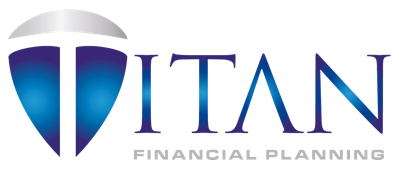Claim a tax deduction for your personal contributions to super.
Personal deductible contributions
By making personal contributions to your super, you may be able to claim a tax deduction to reduce your tax liability.
What’s in it for me?
- Pay less tax by reducing your taxable income, while growing your retirement savings quicker.
- Retirees, employees, self-employed persons and homemakers can build wealth more effectively.
Who can this strategy work for?
This strategy is most suitable if you:
- want to reduce tax
- are eligible to
How does it work?
A personal deductible contribution allows you to reduce your taxable income. The amount of the contribution claimed as a tax deduction is generally taxed at 15% (contributions tax) in the fund, instead of your marginal tax rate. Typically, anyone under age 67 can make personal deductible contributions. A work test generally applies from age 67 and an upper age limit applies. However, employees may also make personal deductible contributions. Contributions you claim as a tax deduction count as concessional contributions.
Concessional contributions
Concessional contributions are generally subject to 15%1 contributions tax in your super fund up to set limits. They generally include employer contributions such as Super Guarantee, salary sacrifice contributions and personal contributions for which a tax deduction has been claimed.
Concessional contributions caps
An annual cap on concessional contributions applies each financial year. The concessional contributions cap for the 2021/2022 financial year is $27,500, regardless of age, but if your total superannuation balance last 30 June 2021 was less than $500,000 your concessional cap may be higher.
If you exceed your concessional contributions cap the excess contributions are generally included in your assessable income and taxed at your marginal rate. You will receive a non-refundable tax offset equal to 15% of the excess contributions.
Personal deductible contributions count as income for benefits and concessions such as:
- selected tax offsets
- Family Tax Benefit (FTB) Part A & B
- Medicare levy surcharge (income threshold)
- Commonwealth Seniors Health Card
|
Tips and tricks
- After the end of the financial year, you will receive a letter from your super fund asking if you intend to claim a tax deduction for your personal contributions. Consult your financial adviser or tax consultant before making a decision.
- However if you start a pension, withdraw or rollover your money, don’t wait until the end of the financial You will need to notify your super fund that you intend to claim a tax deduction before you start a pension, withdraw or rollover your money.
- Ensure you have notified your super fund and provided the form that you intend to claim a tax deduction for personal contributions. You should receive acknowledgement of receipt of that notice from the fund before you complete your tax return, start a pension or withdraw or rollover money from the fund to which you made your personal
Notes:
- An additional 15% tax may apply to certain concessional contributions if your income plus concessional contributions exceed $250,000 in the 2021/2022 financial
- Individuals can elect to withdraw up to 85% of their excess concessional contributions from their superannuation. Depending upon the amount effectively withdrawn, excess concessional contributions left in the super fund may also count towards the non-concessional contribution cap.
- Personal income tax and Medicare levy if no personal deductible contribution is made is $14,842. If the $20,000 personal deductible contribution is made personal income tax reduces to $7,767 and $3,000 contributions tax is paid in the super fund.
Need more information?
If you would like to discuss this further or how it might impact you, call your financial adviser.
This document has been prepared by Actuate Alliance Services Pty Ltd (ABN 40 083 233 925, AFSL 240959) (‘Actuate’), a member of the IOOF group of companies (‘IOOF Group’), for use and distribution by representatives and authorised representatives of Actuate, Godfrey Pembroke Group Pty Limited, Consultum Financial Advisers Pty Ltd, Bridges Financial Services Pty Limited, Bridges Financial Services Pty Limited trading as MLC Advice, Lonsdale Financial Group Ltd, Millennium3 Financial Services Pty Ltd, RI Advice Group Pty Ltd, Shadforth Financial Group Ltd and Australian Financial Services Licensees with whom any IOOF Group member has a commercial services agreement.
Information in this document is of a general nature only and does not take into account your objectives, financial situation or needs. You should seek personal financial, tax, legal and such other advice as necessary or appropriate before relying on the information in this document or making any financial investment, insurance or other decision. If this document is provided to you in conjunction with a Statement of Advice (‘SOA’), any personal financial advice relevant to the financial planning concept/strategy referred to in this document will be contained in that SOA.
Information in this document reflects our understanding of relevant regulatory requirements and laws etc as at the date of issue, which may be subject to change. While care has been taken in preparing this document, no liability is accepted by Actuate or any member of the IOOF Group, nor their agents or employees for any loss arising from any reliance on this document.
If any financial product is referred to in this document, you should consider the relevant PDS or other disclosure material before making an investment decision in relation to that financial product.
